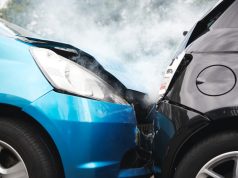
Truck accidents are among the most devastating types of roadway collisions, often resulting in severe injuries, property damage, and life-altering consequences. Understanding the root causes of truck accidents is crucial not only for prevention but also for pursuing legal justice if you’ve been injured.
In this post, we’ll break down the most common causes of truck accidents and explain what kind of evidence can help prove liability in court. According to the Large Truck Crash Causation Study, driver error is a contributing factor in over 87% of large truck crashes.
1. Driver Fatigue
Cause:
Truck drivers are under immense pressure to deliver goods quickly, which can lead to driving for hours without adequate rest. Despite federal regulations, drowsy driving is a leading cause of truck crashes.
Proof in Court:
The Federal Motor Carrier Safety Administration (FMCSA) mandates Hours of Service (HOS) regulations, limiting how long drivers can operate before taking a break.
To prove fatigue, your attorney may use:
- Electronic Logging Devices (ELDs)
- Dispatch records
- Rest stop receipts
- Driver testimony or deposition
2. Distracted Driving
Cause:
Just like passenger car drivers, truck operators can become distracted by phones, GPS systems, eating, or even paperwork. But with vehicles that can weigh up to 80,000 pounds, the stakes are much higher.
Proof in Court:
- Cell phone records
- Dashboard camera footage
- Witness statements
- Police reports
Distracted driving is a growing concern in the trucking industry, with serious implications. The National Safety Council reports that thousands of crashes are caused each year by inattention behind the wheel.
3. Improper Truck Maintenance
Cause:
Federal law requires commercial trucks to undergo regular inspections and maintenance. Skipping or neglecting maintenance can lead to brake failures, tire blowouts, and steering malfunctions.
Proof in Court:
- Maintenance logs
- Inspection reports
- Expert mechanical evaluation
- Accident reconstruction data
If a defect or mechanical failure contributed to the crash, a third-party maintenance company could also share liability.
4. Speeding and Aggressive Driving
Cause:
Commercial trucks take longer to stop and are more difficult to maneuver. Speeding, tailgating, or unsafe lane changes greatly increase the risk of catastrophic crashes.
Proof in Court:
- Data from the truck’s onboard computer (telematics)
- Dash cams
- Speed estimates from accident reconstruction
- Eyewitness accounts
In many cases, expert witnesses can use physics and vehicle data to show that a truck was going too fast for the road conditions.
5. Improper Cargo Loading
Cause:
Improperly loaded or unsecured cargo can shift during transit, leading to rollovers or jackknife accidents. Overloaded trucks also struggle with braking and control.
Proof in Court:
- Bill of lading and weight tickets
- Loading dock video footage
- Statements from loading crew
- Cargo inspection reports
Liability may extend to a third-party cargo loading company if negligence occurred outside the driver’s control.
6. Driving Under the Influence
Cause:
Although drug and alcohol use is strictly prohibited for commercial drivers, impaired driving still happens. The CDC outlines alarming statistics on how substance impairment affects driving performance.
Proof in Court:
- Police toxicology reports
- Arrest records
- Witness testimony about erratic driving
- Blood or urine test results
Penalties are especially severe for CDL (Commercial Driver’s License) holders, and proving impairment can support claims for punitive damages.
7. Lack of Driver Training or Experience
Cause:
Operating a tractor-trailer requires specialized skills. Inadequate training in areas like wide turns, stopping distance, or driving in poor weather can lead to preventable accidents.
Proof in Court:
- Driver training logs
- CDL qualification records
- Testimonies from other drivers or trainers
- Company hiring policies
This type of claim often exposes negligent hiring or supervision by the trucking company.
Proving Negligence in a Truck Accident Case
Truck accident litigation isn’t as simple as filing an insurance claim. These cases often involve multiple defendants—including the driver, trucking company, maintenance provider, and even the vehicle manufacturer. Successfully proving fault requires collecting robust evidence, navigating federal and state regulations, and often working with accident reconstruction experts.
For a strong case, attorneys typically gather:
- Black box data (event data recorder)
- Trucking company communication logs
- Surveillance footage
- Expert witness testimony
Protecting Your Rights After a Truck Accident
Truck accident cases are complex, high-stakes, and heavily defended by corporate insurers. If you’ve been injured in a crash involving a commercial vehicle, it’s critical to act quickly to preserve evidence and protect your rights.
That’s why it’s so important to work with an experienced truck accident lawyer in Austin—someone who understands how to investigate, litigate, and win these complicated cases.







